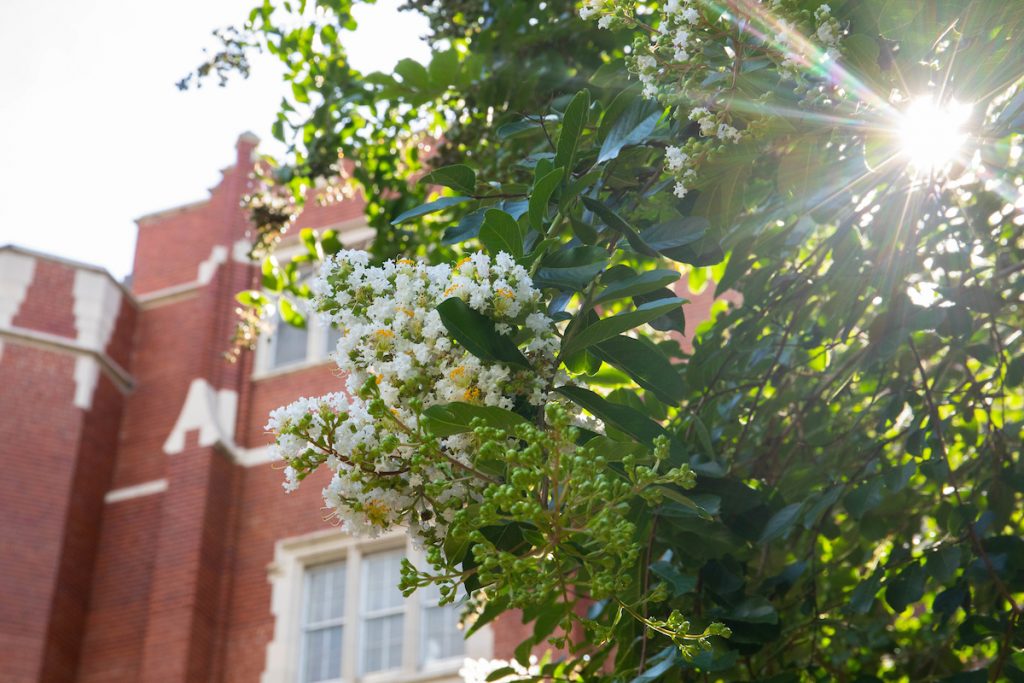
How does Academics fit into a University Climate Action Plan?
A climate action plan or CAP, is generally considered a strategic plan for reducing and mitigating greenhouse gas emissions. From airlines to banks to fast-food restaurants, many organizations have climate action plans that address the challenge of climate change and share their carbon neutrality goals.
While any climate action plan is a step forward for sustainability efforts, higher education institutions may include an additional layer to their climate action plans – one that does not actually emit greenhouse gases!
You guessed it. University CAPs often include an academic component. The role of education in climate action is powerful. Including academics signals an important investment in students’ futures, helping them to leave the university with the knowledge and skills to be informed global citizens and leaders, equipped for success in the job market, and meaningfully engaged in their communities.
The Role of Academics In University Climate Action
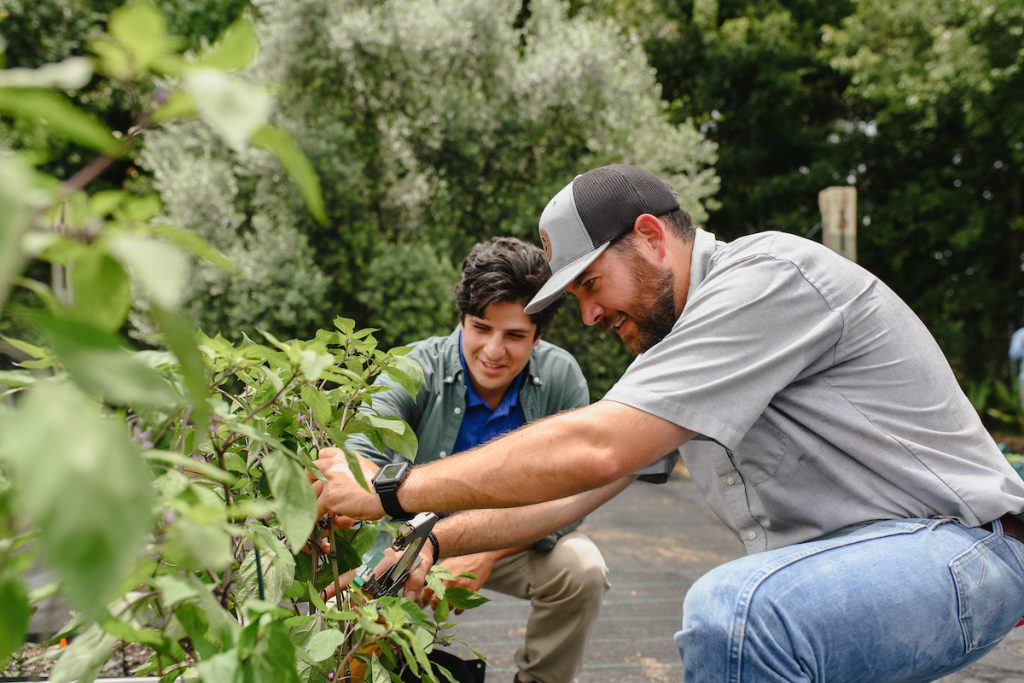
Visit the Association for the Advancement of Sustainability in Higher Education (AASHE) website and you’ll see the following tagline: “Inspiring higher education to lead the sustainability transformation.”
It doesn’t get much more direct than that. Higher education has long been viewed as a role model and innovator in the world of sustainability. And there are few organizations better positioned to prepare the next generation to tackle the challenges of the future with fresh strategies.
University climate action plans consider academics in a variety of potential ways, including:
- Supporting climate change literacy and learning outcomes
- Opportunities to link climate action to research, course content, scholarship, and both curricular and co-curricular education
- Including climate goals in Campus as a Living Lab initiatives
- Resources to prepare students with practical competencies to champion sustainability in the ever-changing industry and society
These academic inclusions aim to reach across university silos, prompting meaningful collaboration and fresh analysis. As climate change author Walter Leal shares to Time: “law schools, med schools, literature programs, economics departments and more are incorporating climate into their undergraduate curriculums, grappling with how climate will transform their field.” The complex nature of climate change prompts a cross-sectional and interdisciplinary approach at the university level, bringing together staff and faculty to build in space for innovative ideas based on leading research and practical expertise.
Academics in the UF Climate Action Plan 2.0
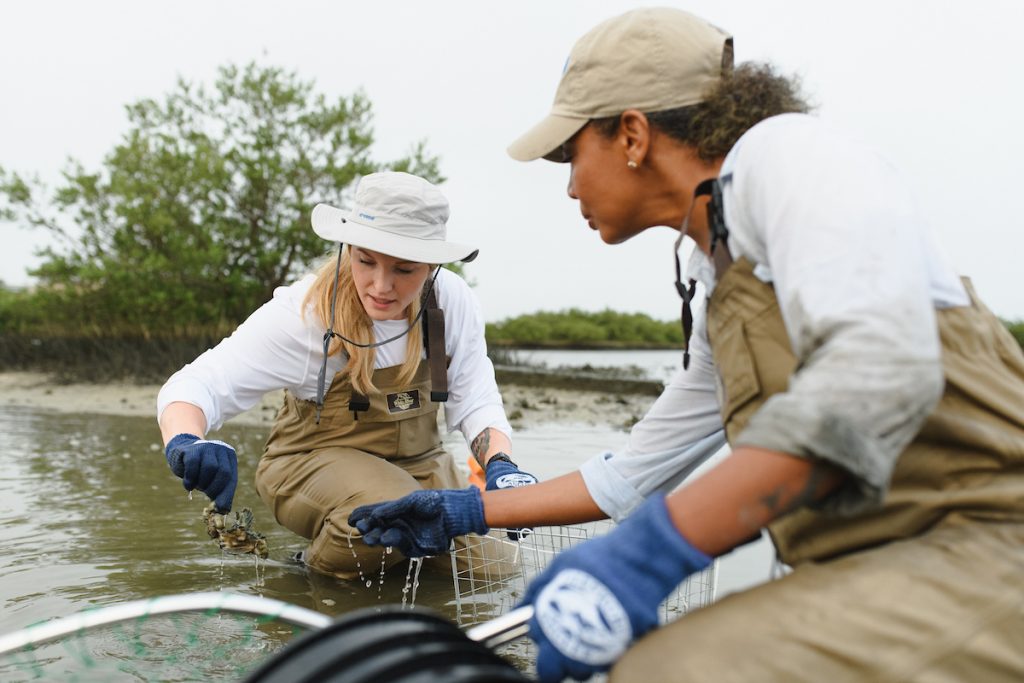
Innovative, sustainability-focused education is not a novelty at the University of Florida. Here at UF, many colleges offer majors, certificates, and other curricular opportunities in sustainability. There are also several centers and institutes on campus and around the state of Florida that collaborate with UF on research related to sustainability.
This foundation puts UF in an ideal position to leverage its Top 5 academic ranking for real climate action results. There are three central academic components that are paving the way for UF’s success with climate action.
1. Faculty Buy-In
As experts in their respective fields, faculty play a crucial role in bolstering sustainability knowledge on campus and beyond. Climate research across the state is strengthened as faculty collect data, make important discoveries, and measure the impacts of climate change.
Academics serve as the starting point to take climate knowledge from the classroom to direct action in the community by tying theory to practical application. Through a collaborative planning process, academics overlaps with and amplifies the goals in other focus areas. In the ongoing UF CAP 2.0 update, there are five areas in addition to academics – Energy, Built Environment, Offsets & Finance, Transportation, and Resilience.
The UF CAP working groups are made up of about 100 staff, faculty, students, and more from across the university. These groups share knowledge and research expertise to strengthen the goals across all areas. This ability to draw upon the top scholars and researchers in all disciplines and pair it with the expertise of the dedicated engineers, planners, and more that make up the UF staff, is the underlying strength of a university CAP.
2. Climate in the Classroom
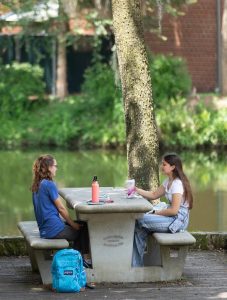
Education about sustainability gives UF students the opportunity to learn and develop solutions to complex environmental, social, and economic issues affecting today’s world. Faculty set the tone on sustainability for education, presenting research and information through the university framework and encouraging students to discover where sustainability overlaps with other experiences and passions they hold.
Support for sustainability and climate education has grown across UF through the establishment of two major academics programs related to sustainability, countless sustainability-focused and sustainability-related courses and the 2020 UF Sustainable Development Goal Faculty Guide. In addition, the Interdisciplinary UF Quest program has continued to evolve and encourage students to examine complex topics that explore problems facing society and/or the planet. Through this program, students can find course options connected to climate action.
3. Amplifying Climate Action Efforts
Faculty expand their sustainability impact outside of the classroom through participation in non-teaching opportunities and through the networks they support on campus.
Beyond sharing research and knowledge, UF faculty on the CAP Working Groups are able to advocate for climate action across campus by sharing and highlighting the interconnected goals and values of the institution. Their work can bring students and other stakeholders into the climate action plan discussion and reinforce how it contributes to the well-being of the university and its constituents.
The connections and relationships built across stakeholder groups in the CAP 2.0 process are laying the foundation for achieving long term success in mitigating and reducing the university’s greenhouse gas emissions, supporting UF’s academic mission and increasing the university’s resilience to climate impacts.
Next Steps for Academics & Climate Action at UF
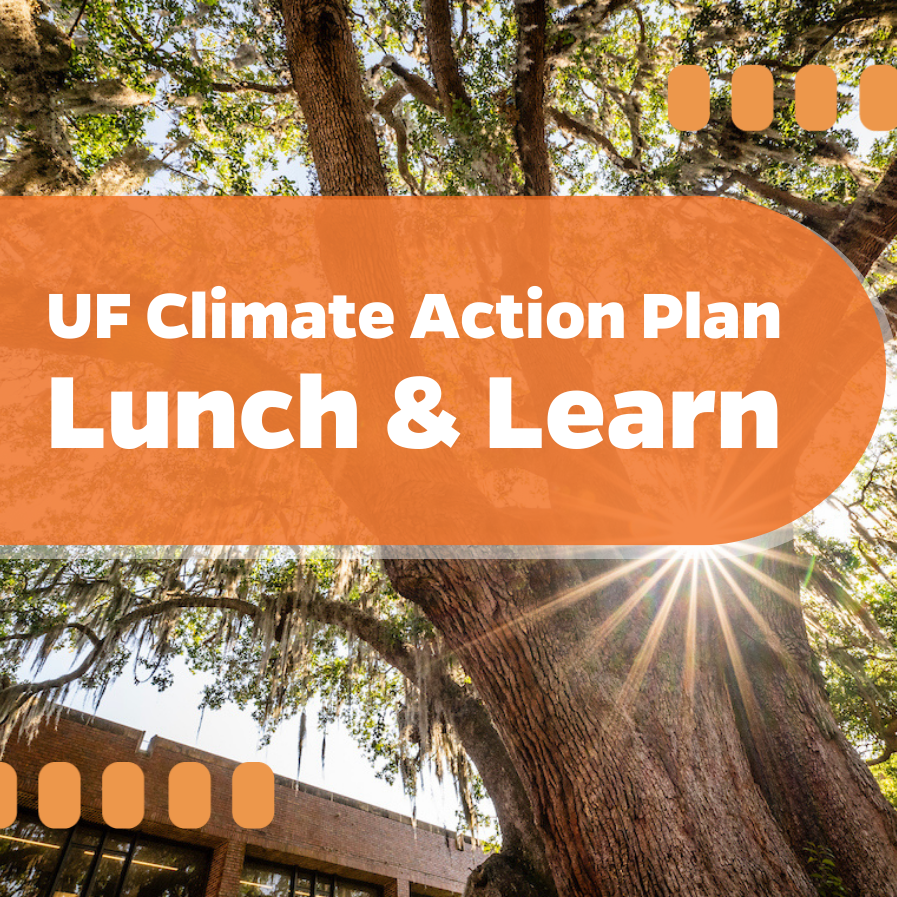
For those interested in how they can further support sustainability in their academic approach or otherwise, learn more about the UF CAP 2.0 here.
All UF staff and faculty are invited to join the Office of Sustainability on Friday, December 10, 12-1pm for a virtual Lunch & Learn to gain a better understanding of the UF CAP 2.0 and how UF employees can play a role in its development. If you are unable to attend the Lunch & Learn, please consider scheduling a CAP Talk for your department, UF professional organization or guest seminar for a course you teach.
For more resources and information about how you can contribute to a more sustainable campus and beyond, follow the UF Office of Sustainability on Facebook, Instagram, Twitter & TikTok (@SustainableUF). You can also stay updated on the latest announcements, events, and volunteer opportunities at UF and beyond by subscribing to the Sustainable UF e-newsletter.
